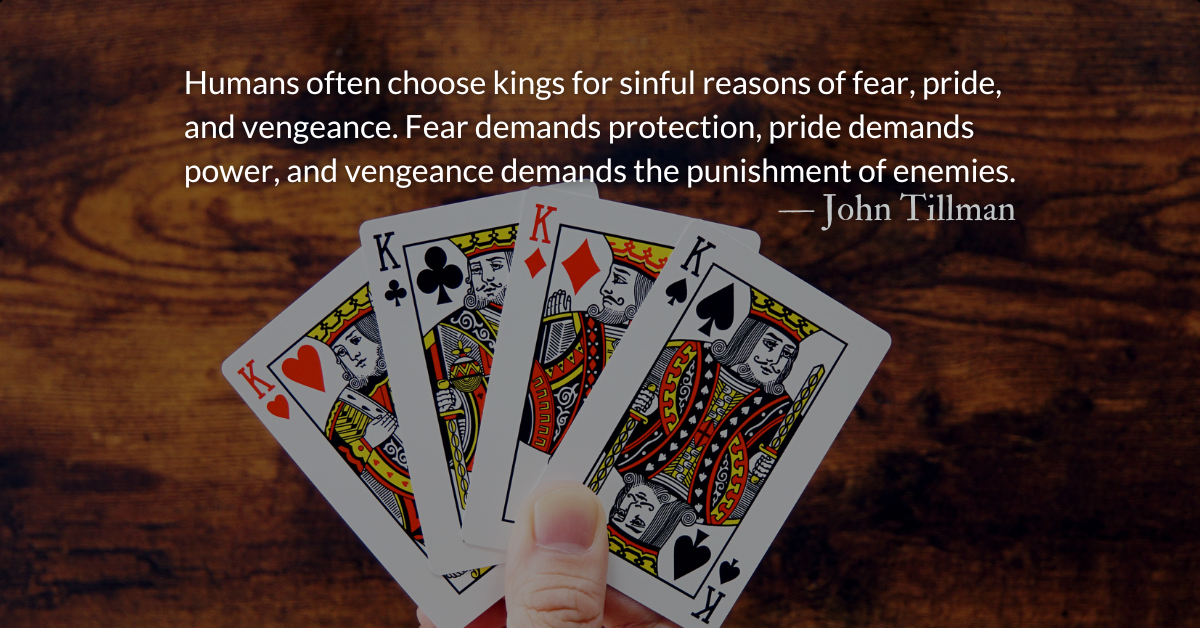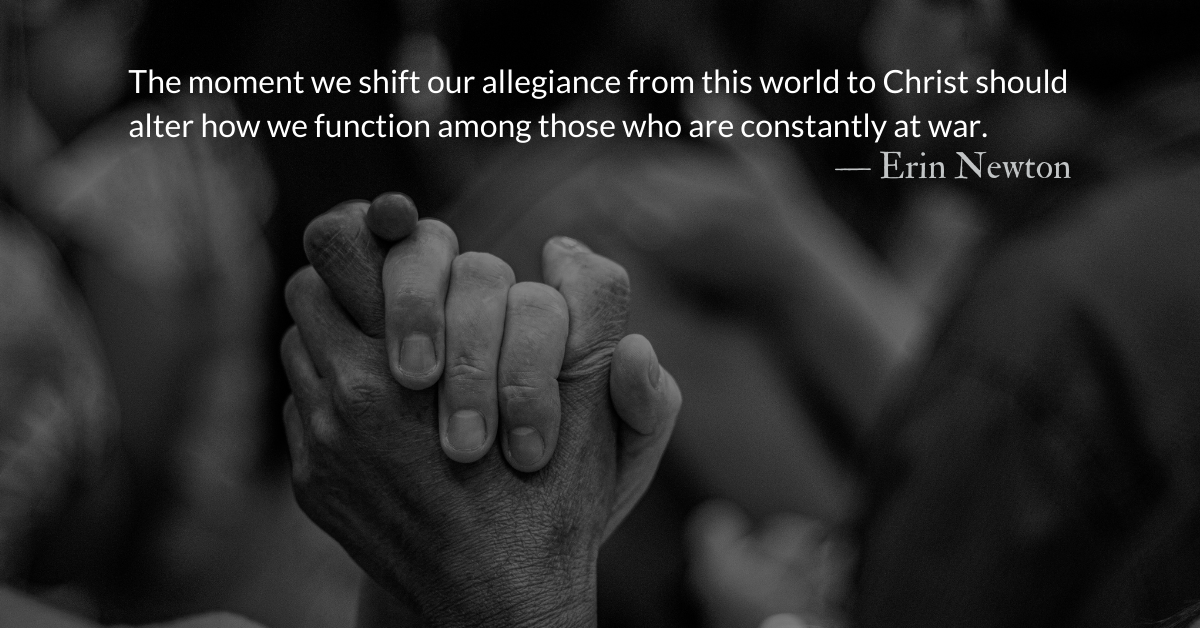Links for today’s readings:
Read: 2 Samuel 2 Listen: (5:07) Read: Revelation 12 Listen: (2:58)
Scripture Focus: 2 Samuel 2.4-8
4 Then the men of Judah came to Hebron, and there they anointed David king over the tribe of Judah. When David was told that it was the men from Jabesh Gilead who had buried Saul, 5 he sent messengers to them to say to them, “The Lord bless you for showing this kindness to Saul your master by burying him. 6 May the Lord now show you kindness and faithfulness, and I too will show you the same favor because you have done this. 7 Now then, be strong and brave, for Saul your master is dead, and the people of Judah have anointed me king over them.”
8 Meanwhile, Abner son of Ner, the commander of Saul’s army, had taken Ish-Bosheth son of Saul and brought him over to Mahanaim. 9 He made him king over Gilead, Ashuri and Jezreel, and also over Ephraim, Benjamin and all Israel.
Reflection: Who’s The King?
By John Tillman
Who’s the king now?
Following the crushing military defeat that led to Saul and Jonathan’s deaths, many tribes must have been in disarray and at least partly under Philistine control. There was a leadership crisis.
One tribe, Benjamin, led by Abner, anointed Saul’s son, Ish-Bosheth, king. One tribe, Judah, led by Joab and other “sons of Zeruiah” anointed David king. Which was the rightful ruler?
Who anoints kings or brings them down? Scripture says God does, but it’s not that simple. Sometimes God acts directly for or against rulers, but usually God sovereignly allows humans (or uses them) to raise up and throw down kings.
Who are the “kings” we have anointed over us or our tribe? This could include governmental leaders, but think beyond political “kings.” Friends, co-workers, bosses, advisors, or family members can be our “kings.” We can set up ideologies, cultural norms, or desires as “kings” over us. Who have we raised up? Who should we throw down?
Humans often choose kings for sinful reasons of fear, pride, and vengeance. Fear demands protection, pride demands power, and vengeance demands the punishment of enemies. Even if we choose the “right” king, we can go wrong. For example, Joab served the rightful king with a sinful heart that brought betrayal, destruction, and death.
David was a better king than Saul and many other biblical kings. However, David ultimately was not the king God truly wanted. God’s anointing of David was not about David anymore than his promise to Eve was about Eve. God promised Eve a snake-crushing seed. God anointed Jesus as that snake-crusher through David. Jesus is the anointed one. David is just his flawed human forerunner.
God seems comfortable working through long lines of broken and tragic humans. We aren’t. We want pretty myths with quick answers and uncomplicated heroes or villains. This drives a tendency towards extremes. We either clean David up, pretending he was worthier than scripture testifies or call him a villain and ignore moments in which God’s heart shone through him. We do the same thing with human or other kings.
Every king is a mixed bag. We must tell the whole truth, good and bad, about them. We must root out any sinful motivations for our earthly allegiances. Whoever God raises up or casts down, we owe no king but Jesus unswerving loyalty.
Serve the rightful king in a righteous way.
Divine Hours Prayer: The Call to Prayer
Bless God in the congregation; bless the Lord, you that are of the fountain of Israel. — Psalm 68.26
– Divine Hours prayers from The Divine Hours: Prayers for Summer
by Phyllis Tickle
Read more: Conflict’s Aftermath
Polarized. This word is the constant summary of our life lately. Every area seems to be weighted down in conflict.
Read more: Blocking the Way of Wickedness
We don’t always have a choice about working with or living among wicked people, but we can choose how we respond.



